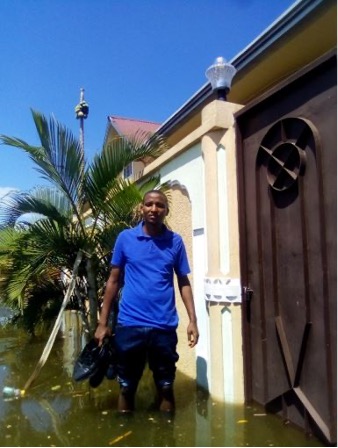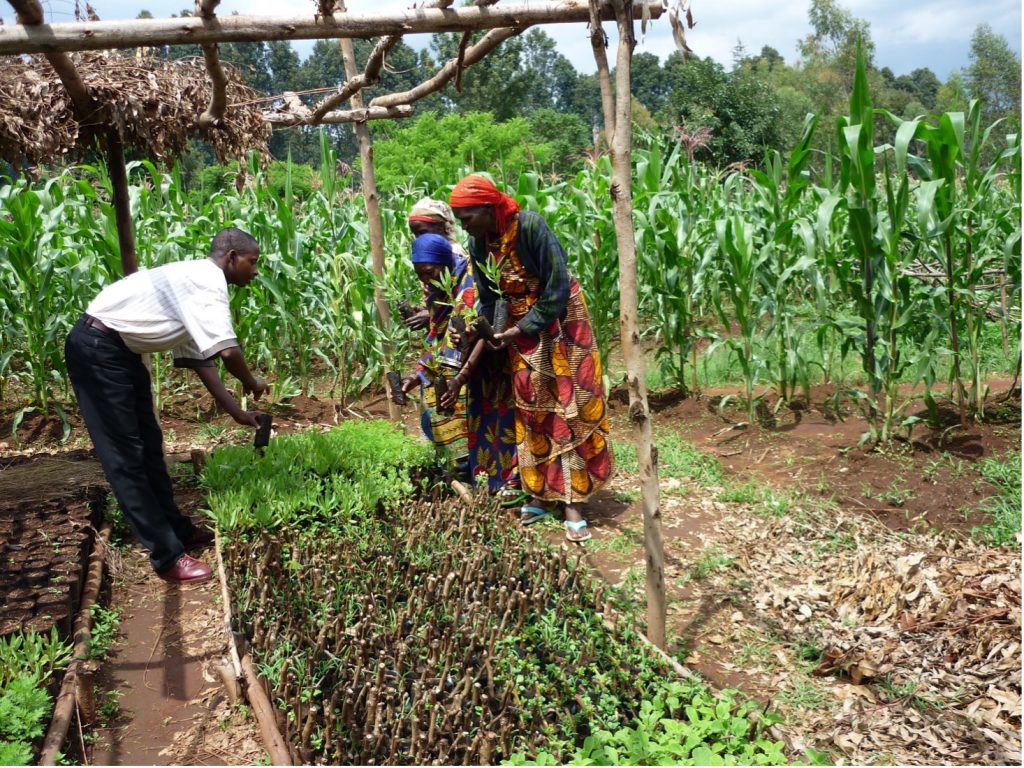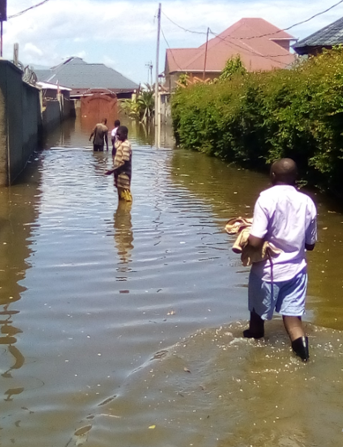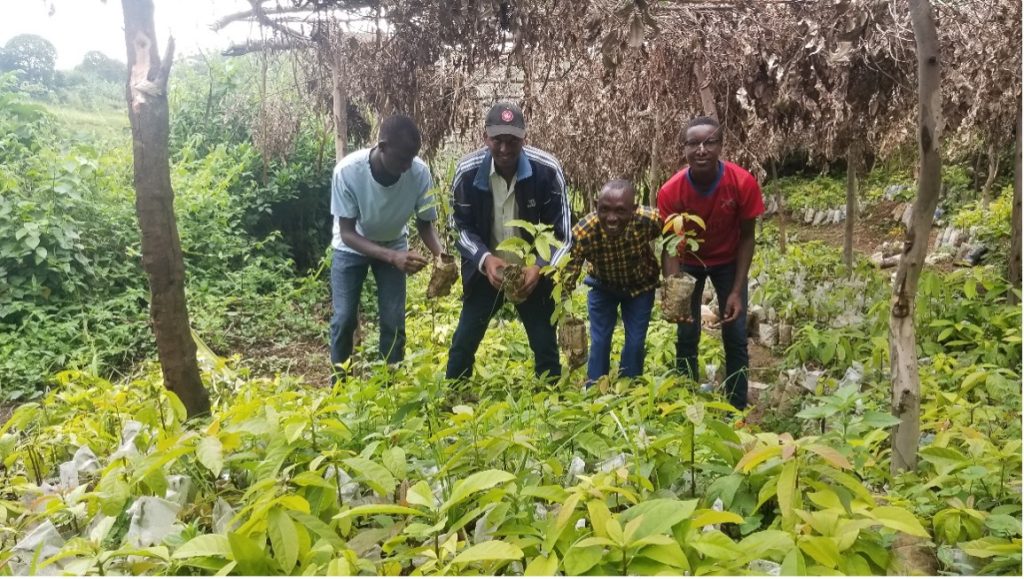 His name is Jules Mugisha and he hails from Burundi. He holds two master’s degrees in science and integrated environmental management from the University of Burundi and in nutrition, food security and climate change from the East African Nutritional Sciences Institute (EANSI). The environment in which he grew up is strongly affected by the effects of climate change (floods, landslides, climate-related diseases, disruption of the seasonal calendar, erosion and associated waste, rainfall irregularities, impact on children, etc.). For this reason, he has signed up for UN CC:e-Learn to gain a better understanding of climate change issues and the players involved in this sector, as well as ways of mitigating and adapting to its impacts.
His name is Jules Mugisha and he hails from Burundi. He holds two master’s degrees in science and integrated environmental management from the University of Burundi and in nutrition, food security and climate change from the East African Nutritional Sciences Institute (EANSI). The environment in which he grew up is strongly affected by the effects of climate change (floods, landslides, climate-related diseases, disruption of the seasonal calendar, erosion and associated waste, rainfall irregularities, impact on children, etc.). For this reason, he has signed up for UN CC:e-Learn to gain a better understanding of climate change issues and the players involved in this sector, as well as ways of mitigating and adapting to its impacts.
These training courses on UN CC:e-Learn enabled me to be selected as a trainer at the International Training and Research Center for the Environment and Sustainable Development (CIFREDD in French).
As for their work as trainers at CIFREDD, it began with the month of February 2024. The overall aim of the training courses is to help build the capacities of different people and talents so that they can make a greater contribution to promoting sustainable development and combating deforestation, forest degradation and climate change. It focuses on modules relating to International Environmental Policies, Conventions and Negotiations; climate and disaster risk management; and environmental challenges worldwide and in Burundi: climate change, deforestation and biodiversity loss. CIFREDD has already given over 300 training courses to young people and talents in the field of sustainable development and environmental protection.
The content of the UN CC:Learn courses I’ve learned has helped me a lot, particularly in preparing different teaching modules by establishing clear learning objectives, making sure that the training is relevant.
As well as being a trainer, he then became involved in raising awareness among young people to get them involved in the fight against climate change, notably through forest and fruit tree planting, environmental protection and the regeneration of endangered local species. This is why he founded a non-governmental organization called the Burundian Youth-Environment Coalition (CBJE in French), with the aim of achieving these goals as quickly as possible.
With the knowledge he acquired on UN CC:e-Learn, he was able to understand that the effects of climate change generate various phenomena such as flooding, rainfall irregularities, landslides, climate-related diseases, pest outbreaks, erosion and related waste, drought, disruption of the seasonal calendar, impact on children, changes in epidemiological patterns, plant diseases, species extinction, as well as high winds and storms.

A nursery of endangered medicinal plants, created by the CBJE near the Buta traditional medicine center, to encourage their domestication in agroforestry.
Given that a large part of Burundi’s population, especially those living around the shores of Lake Tanganyika, is affected by the floods, we felt it was necessary first to raise awareness among the population to clear flooded areas in order to protect people, especially children and women, from drowning.

Residents cross the water to retrieve items from their flooded homes in Bujumbura, Kinindo district, March 2024.
Another very important action is that the Burundian Youth-Environment Coalition (CBJE) has recently begun working in partnership with the Buta traditional medicine center, located in southern Burundi. This center is renowned for the quality of its treatments using local plants with proven healing properties. CBJE is responsible for identifying, multiplying and planting these medicinal species, which are unfortunately on the verge of extinction in various parts of the country due to climate change and excessive exploitation. The organization also raises awareness among the population of the need to domesticate these species in their own fields, in the form of agroforestry, which has very positive impacts on soil fertility, erosion control and land management.
The major impact of the CBJE is that 2,000 forest trees and 1,400 fruit trees have already been planted under its supervision and are doing very well at the moment. People are starting to plant medicinal species on a large scale, rather than disturbing the little that remains in our natural forests, and we’re proud of this.
The CBJE prepares nurseries and supplies seedlings to encourage people to grow them at home. The organization also raises awareness and helps plant fruit trees to combat food insecurity caused by climate change. This initiative contributes to the reduction of social inequalities by improving the livelihoods of local communities, with particular emphasis on the involvement and active participation of young people, women, indigenous people and traditional healers. In conclusion, he is convinced that all these actions are and will be extremely beneficial in terms of mitigation, adaptation and resilience to climate change.
Start your learning journey:
Join Jules and hundreds of other students and start learning today:
- Climate Change: From Learning to Action
- Human health and climate change
- Plastic Waste and the Basel Convention
- Children and Climate Change
*The views expressed in this story are solely those of the author and do not necessarily reflect the official policies or positions of the United Nations or any of its affiliated organizations.

